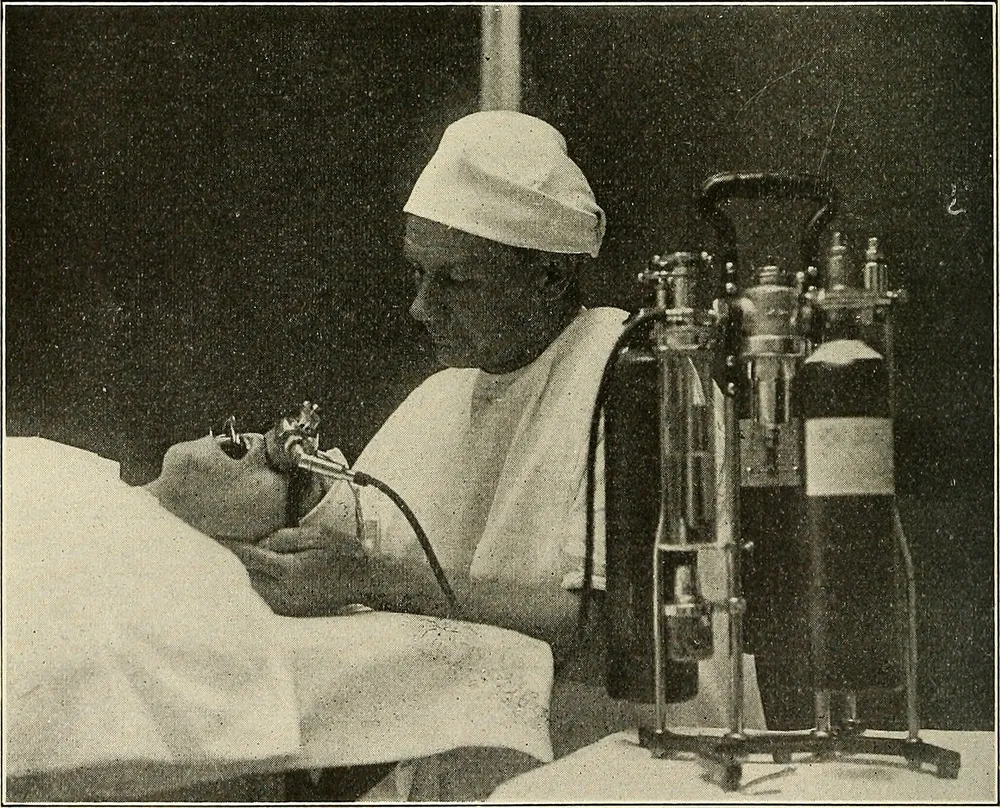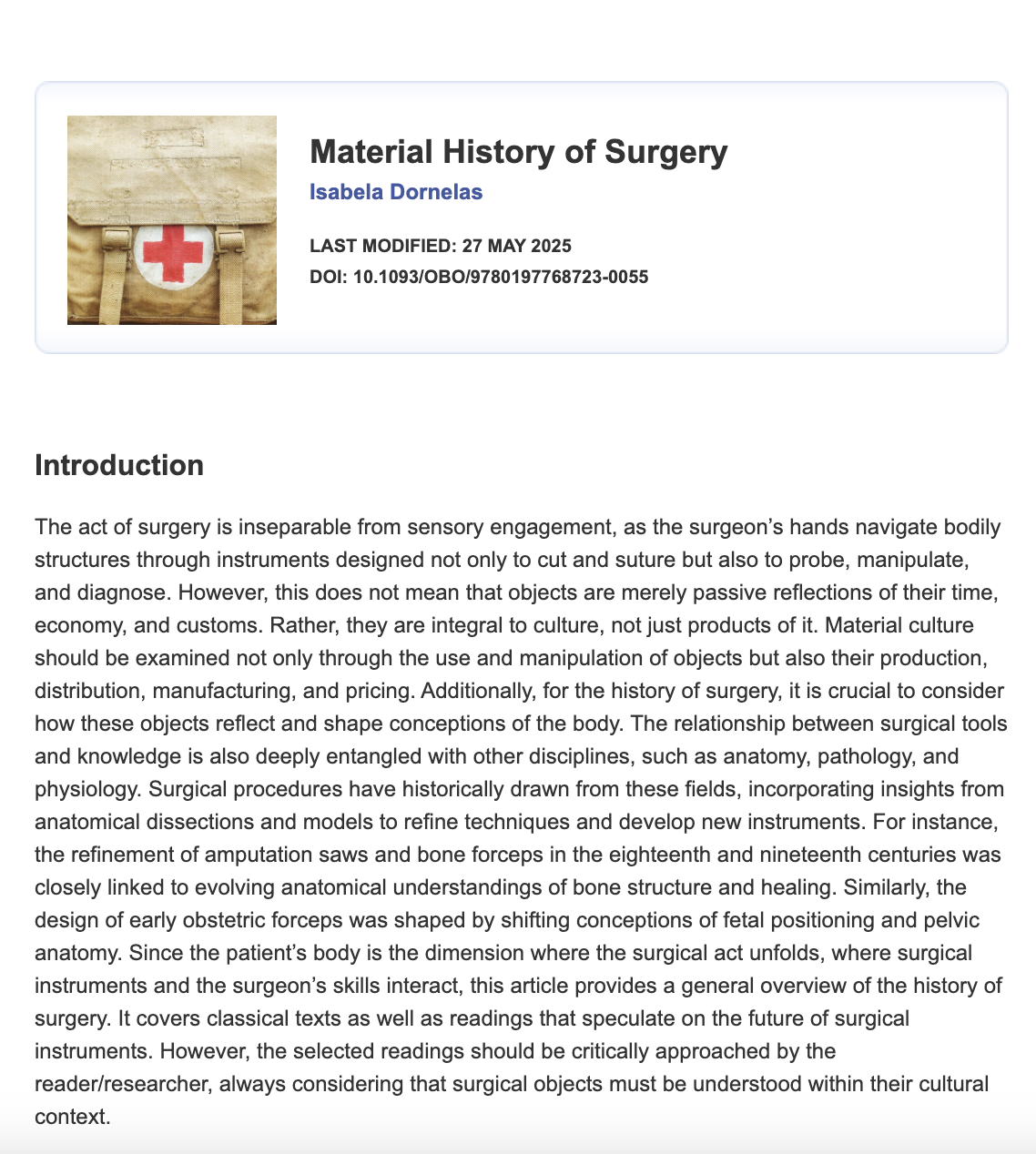I recently had the great pleasure of contributing to the Oxford Bibliographies project with an entry titled Material History of Surgery.
The Oxford Bibliographies platform is an excellent resource for anyone beginning to explore a new field of research. Through a general introduction and at least 50 annotated references, an expert in the area offers a curated overview of the essential readings on a given topic.
In my case, I contributed an article on the material history of surgery, as part of the History of Medicine section. The introductory text — available even to non-subscribers — provides a concise overview of the topic, and the extended version explores cutting and suturing instruments, which are indispensable to surgical practice.
Without a doubt, the section I most enjoyed writing was the one on methodology. In my experience, historians often approach historical objects in a merely descriptive way, treating them as if they were just symptoms of socio-cultural practices — at most, silent witnesses of the past. What I propose, in conversation with a well-established historiography (as noted by Thomas Schlich), is that these objects should also be seen as active agents that shape culture and impact society.
Let me give a simple, yet powerful example from the sensory realm: think of an anesthesia machine. Who could deny the impact it has had on both individuals — who, before its use, had to bite down on a cloth to avoid biting their own tongues — and on the very idea of surgery? From the mid-19th century onward, it became possible to sleep through an operation — and perhaps awaken to see the results, or not wake up at all. The fact is that this device, once a bulky contraption in the operating room, radically transformed surgical practice. Without it, surgery was a space of unbearable screams and strong hands ready to restrain the patient’s agonizing body.

It was a true pleasure to be part of this project — not only because I had the chance to revisit my archival materials and reflect on the foundations of my field (which was a delightful experience), but especially because it allowed me to contribute to a resource with strong pedagogical value for young historians interested in the history of medicine.
I would be honored if you would take a look at the piece!
